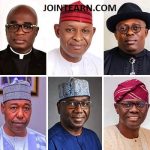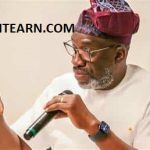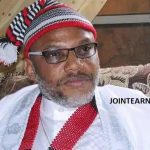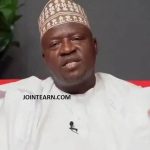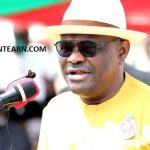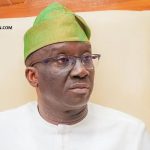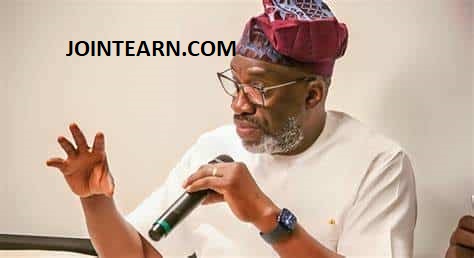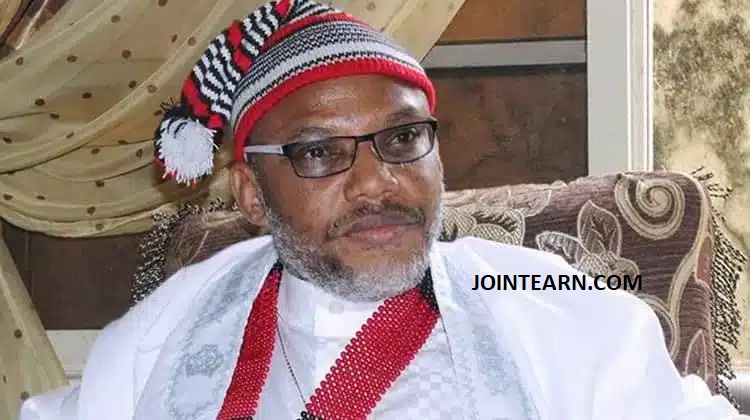The Coalition of United Political Parties (CUPP) has strongly condemned the recent defections of prominent political figures, including Delta State Governor Sheriff Oborevwori and his predecessor, Senator Ifeanyi Okowa, describing their actions as a betrayal of the people’s trust and a direct affront to democratic values.
Addressing the press in Abuja on Thursday, CUPP spokesperson Barrister Mark Adebayo accused the defectors of abandoning the ideals on which they were elected, saying the move reflects a growing culture of political opportunism in Nigeria’s democratic system. He lamented that politicians who once campaigned on platforms of reform, inclusion, and party loyalty are now switching allegiances to serve personal interests, particularly to align with the ruling All Progressives Congress (APC).
“It is a shame,” Adebayo said. “They no longer believe in the people’s mandate. They have chosen to bow to pressure, abandon their convictions, and place personal survival above public service. The people of Delta State and indeed Nigerians are watching this political theatre with great disappointment.”
CUPP Alleges Backdoor Dealings
CUPP further alleged that the defections were not based on ideological shifts or genuine dissatisfaction with the opposition parties but rather a result of backdoor negotiations driven by fear, pressure, and the promise of protection from prosecution.
“We are not ignorant of what is going on behind the scenes,” Adebayo continued. “What we see here is not a genuine political realignment. What we are witnessing is the result of blackmail and inducement. Politicians are being threatened with probes, while others are being offered safe passage in exchange for their loyalty to the ruling party.”
According to CUPP, such tactics not only undermine the spirit of democracy but also discredit the anti-corruption war which has long been championed as one of the cornerstones of President Bola Tinubu’s administration.
Betrayal of the Electorate
The coalition stressed that Governor Oborevwori, who was elected under the platform of the People’s Democratic Party (PDP), owes his mandate to the people who trusted in the party’s vision and manifesto. The same, CUPP said, applies to Senator Ifeanyi Okowa, who recently concluded his tenure and had been a vocal critic of the APC during the 2023 elections.
“The people of Delta State voted not just for individuals, but for a political ideology and a developmental agenda,” said Adebayo. “To suddenly defect to the very party you once called the problem is to make a mockery of the electoral process.”
CUPP called on Nigerians to begin holding politicians accountable not just during elections but throughout their tenure, stating that defection for political convenience has become a toxic feature of Nigerian politics and must be discouraged.
Eroding Party Loyalty and Democratic Institutions
According to CUPP, the ongoing wave of defections reflects the deep erosion of party discipline and ideological identity in Nigeria’s multiparty system. The coalition believes that the absence of clear penalties for political cross-carpeting has emboldened politicians to treat political parties as mere platforms for personal gain rather than institutions of public trust and service.
“What happened to party discipline? What happened to consistency?” Adebayo asked rhetorically. “A true democrat should not switch political loyalties like changing clothes, especially not at the expense of the people who voted them into office.”
He called on the Independent National Electoral Commission (INEC) and the National Assembly to introduce stricter laws and regulations regarding defections, including the possibility of mandating re-election or recall processes for elected officials who defect from the parties under which they were elected.
CUPP Urges Citizens to Resist Political Intimidation
CUPP also accused the APC-led federal government of intimidating opposition politicians into defecting by using security agencies and anti-corruption bodies as political weapons. According to the coalition, this approach is not only undemocratic but dangerously authoritarian.
“We must protect our democracy from descending into tyranny disguised as party supremacy,” Adebayo warned. “What we need now is a united opposition, not fragmented politicians looking for personal safety and political cover.”
He urged citizens to speak up and resist the normalization of political defection as a survival strategy, warning that continued silence could embolden more leaders to forsake their constituents in the name of political expediency.
A Wake-Up Call for Opposition Parties
CUPP called on opposition parties, especially the PDP, to see these defections as a wake-up call to strengthen internal unity, reinvigorate grassroots engagement, and build a resilient party system that discourages betrayal and promotes accountability.
“These defections should not demoralize us but energize us,” Adebayo stated. “Now is the time to return to the drawing board, reconnect with the people, and build a movement that is stronger than any intimidation or inducement.”
He concluded by reaffirming CUPP’s commitment to preserving Nigeria’s democratic institutions, promoting good governance, and ensuring that elected leaders are held accountable to the electorate and not to political godfathers or ruling party dictates.
“We must not allow our democracy to be reduced to a marketplace where mandates are traded for immunity,” he said. “The people gave the mandate, and only the people have the right to take it back.”
As the political atmosphere continues to heat up ahead of future elections, CUPP’s message echoes the frustrations of many Nigerians disillusioned by a political class increasingly seen as self-serving and disconnected from the people. Whether this wave of defections will translate into long-term realignment or further deepen public cynicism remains to be seen.

